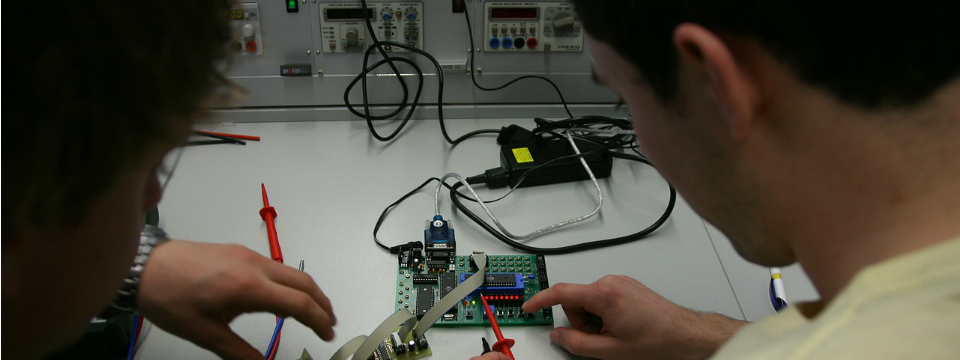Meet Carol S. Dweck, whose research has implications for mentoring for STEM
Carol S. Dweck, a psychologist at Stanford University, has done extensive research on why women tend to avoid careers in math and science. Her work has shown that women and girls who think that science and math ability are innate tend to perform worse and have less interest in those fields than females who believe that those skills can be acquired through hard work. As she describes the distinction, one is a “gift” mindset and the other a “growth” mindset. From the New York Times.
She spoke recently with Vikas Bajaj of The New York Times editorial board about her research and what it says about the underrepresentation of women and minorities in science, technology, engineering and math professions.
In the last several decades, women have made great strides in some fields like biology, chemistry and social sciences. But they are still greatly underrepresented in engineering, computer science and other fields. Why do you think that is?
The harder the science, the stronger the stereotype about women. A stereotype is kind of a fixed mindset label it says this skill is fixed and some people don’t have it. We have found in our research that when females buy into a fixed mindset about math and then they encounter stereotyping their grades and their sense that they belong in math suffers. Also, there is a steep decline in their intention to take math in the future. Now, these are the most prepared women in the country. They are at a top university. They have top SAT scores.
There is some stunning research by Andrei Cimpian [of the University of Illinois] and Sarah-Jane Leslie [of Princeton]. They assessed the mindsets of the different STEM disciplines. They gave surveys to professors and graduate students across the country asking them whether they believed that success in their field came from sheer brain power that couldn’t be taught or by dedication, passion, hard work over long periods of time. They found a startlingly high correlation between the fixed mindset of the field and the representation of women. [In other words, fields of study where the “gift” mindset was prevalent, like computer science and engineering, attracted fewer women than fields where the “growth” mindset held more sway.]
What is the difference between boys and girls? Does the “gift” mindset apply to both of them?
Males and females can both have a fixed mindset about math and science but it hurts girls more because they are on the negative end of the stereotype. If it’s fixed and we have it, then you are not that vulnerable. But if it’s fixed and you don’t have it, you don’t have it.
Can we change the mindset at the individual level or at the school level? And how do we do it?
It can be done at any level. We have done many interventions at the individual level. We have done a lot of it via online interventions for adolescents, and we do see pretty consistent changes in motivation and performance particularly for kids who have been stereotyped in some way.
Can you tell us what these interventions entail?
First, the students learn about the brain and all the wonderful things it does. How it’s involved in everything they do and everything they care about. Then they learn that they can grow their brains. Every time they stretch out of their comfort zone, do hard things, stick to hard things, their brains form stronger and stronger connections and over time their abilities can grow. And then we show them how they can apply it to their schoolwork.
Have you found that doing this changes students’ interest in science and math?
We have shown that it raises their achievement in math and science, their enjoyment in math and science and their desire to continue and their selection of more advanced courses.
If we made a concerted effort to change students’ mindset, would the benefits go beyond girls? Would it help boys, too?
In the short run, boys might protest because they have the advantage. But I think in the long term everybody benefits from the idea that this is a learned set of skills and that your abilities can grow. It makes you more open to learning, more willing to ask for help, more collaborative. We say women have made great strides in biology, in many areas of chemistry, in many places women are now the majority of medical students. But when I began my career that wasn’t the case. There were very strong stereotypes in biology and medicine.
How did that change?
How did that change and why didn’t everything change? I don’t know the answer to that. So, what we are saying is there is no strong gender stereotype or any gender stereotype in many fields. It may be that the harder the science, the later they fall.
When I went into psychology there were very few women.
What kind of stereotypes did you face and how did you overcome them?
When I was in graduate school, my advisor said, what would you like to do? And I said, I would like to teach and do research in a top university. And he said that may not be possible. He said that I was totally qualified and deserved that, but that the world was such that I might not get hired into such a position. I had the great good fortune of getting my Ph.D. in the very first year that universities were actively seeking women faculty. The government was putting pressure on universities to hire more women.
That’s interesting because some people argue that women are simply choosing not to go into some science and math fields and we should not try too hard to change that.
Our research and the research of Cimpian and Leslie shows that when a field does not portray itself in fixed-mindset terms women are very interested. You just describe a field in different ways and women’s interest varies significantly.
Do you see a parallel between women and minorities, especially blacks and Hispanics?
Absolutely, and there is parallel research showing the same kinds of factors. The stereotypes and the mindset that is endorsed by the field are strongly related to minority representation, as well. Similarly, teaching a growth mindset raises minority achievement, enjoyment and interest in the field.
Some argue that the United States is not falling behind in science and math, pointing to the fact that the country has a thriving technology industry. Why is it important that we try to increase the number of women and minorities in science and math?
We are not at or near the top in math or science achievement. There are many, many jobs that are not being filled in technology, or that are not being filled by Americans. Just from the point of view of our national attainment and our economy, we should be seeking to create conditions where more women and minorities achieve in these areas. And from the perspective of women and minorities, technology fields are exciting, they are growing and they are lucrative. And we know from our research that women and minorities have ample potential to succeed in these fields, and that potential is not being realized.
This interview has been edited and condensed.













